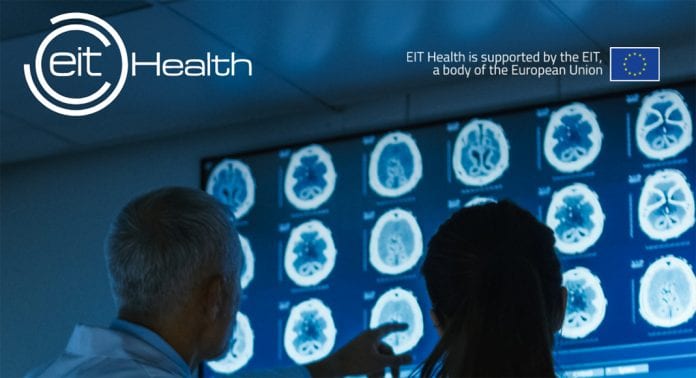
This World Cancer Day, EIT Health is showcasing five groundbreaking initiatives to help you stay optimistic and help to beat cancer.
World Cancer Day aims to save millions of preventable deaths by raising awareness and education about the disease and pushing for collective action. EIT Health, an EU backed network of health innovators showcases five reasons to be optimistic about the fight against cancer.
Every nine seconds, there is a new cancer case diagnosed in the EU and it is currently the second leading cause of death following cardiovascular disease. In addition to the considerable impact on the lives of European citizens, cancer puts a huge strain on Europe’s health and social systems as well as the economy.
EIT Health plays a huge role in the funding and support of innovations in cancer research and treatment. EIT helps to fight the disease by connecting leading organisations from the worlds of business, research, education and healthcare delivery and providing funding and support to the most promising, cutting-edge solutions.
EIT Health CEO Jan-Philipp Beck comments: “Innovation is key to the development of ground-breaking solutions to arm us in the fight against cancer.”
This World Cancer Day, EIT has highlighted five ground-breaking initiatives that could help change the future of cancer, including:
1) Artificial Intelligence is transforming diagnosis
The use of AI to diagnose and grade cancers have seen significant advances. Some of these advances have the potential to improve the detection and treatment of the disease.
OncoWatch, an EIT Health project, uses an AI system to diagnose prostate cancer, with accuracy that is equivalent to top experts in the field. In a study published in The Lancet Oncology, it was comparable with international, leading uropathologists in determining the Gleason score, the most important prognostic marker for prostate cancer.
The OncoWatch, therefore, has the potential to significantly reduce the workload of uropathologists, allowing them to focus on the most difficult cases and at the same time acting as a safety net to improve the standardisation of diagnoses. It also has the potential to speed up prostate cancer diagnostics and reduce the costs for healthcare services.
A first CE-marked product of OncoWatch is expected to launch in Europe by the end of the year.
2) A promising new cancer therapy is starting human clinical trials
The start-up, Peptomyc, supported by EIT Health is leading globally renowned research into an innovative new therapy which has the potential to transform cancer treatment for patients with many different types of cancer.
Their research into inhibiting a protein called Myc, which plays an important role in cancer cells’ survival and proliferation, showed that not only was it feasible to inhibit it, but in doing so it has a therapeutic impact against cancer without damaging healthy tissue.
Peptomyc is now completing the industrial production of their medicine and is planning to start human clinical trials in patients in 2020. Their research has since paved the way for many more groups around the world who are now developing their own Myc inhibitors.
3) A new blood test is improving the detection of prostate cancer so that it can be diagnosed earlier
Stockholm3, an EIT Health backed project, is a blood test that analyses five protein markers and over 100 genetic markers, along with clinical data, to accurately predict the risk of aggressive prostate cancer, providing an informative indication about whether a biopsy is needed.
It is currently used in clinical practice in Sweden, Norway, Finland and Denmark and is in the process of expanding further across Europe and the rest of the world. Stockholm3 could potentially replace or complement the current PSA test, which can be unreliable, meaning that aggressive forms of prostate cancer can go undetected, thus missing the opportunity for effective early treatment.
Launching Stockholm3 in more markets provides the opportunity to reduce the number of men unnecessarily undergoing biopsy and treatment and identify aggressive cancers earlier which will help to boost survival rates and reduce healthcare costs.
4) We are using data to learn more about patient responses to new and emerging immunotherapies
Immunotherapy is a revolutionary approach to cancer treatment that helps your immune system fight cancer, but health professionals still don’t understand why some patients respond to it and others do not.
The EIT Health-backed project, I4PCM, that brings together several EU cancer care centres to improve the way they share data and thus improve personalised care. The project launched a central database or “Virtual European Cancer Institute” with collective information from the centres about clinical research and patient responses to these new immunotherapies.
By unifying efforts to pool information from their clinical, environmental, genomic, imaging and immune biology databases, the data sharing will help to transform clinicians’ and researchers’ approach to cancer research, thereby allowing a deeper understanding of immunotherapy responses than any single centre could achieve on its own.
5) New, non-invasive tests are being created for early intervention in the third most common type of cancer
Colorectal cancer (CRC) is the third most common cancer in men and second most common in women, with 450,000 new patients in Europe annually. Even after successful tumour treatment, 50% of patients will develop colorectal liver metastases (CRLM), a severe and often fatal condition.
COLO-MET are developing a non-invasive and cost-effective urine test, which, combined with the blood test, can specifically detect CRLM, allowing early intervention of colorectal cancer and earlier treatment.







